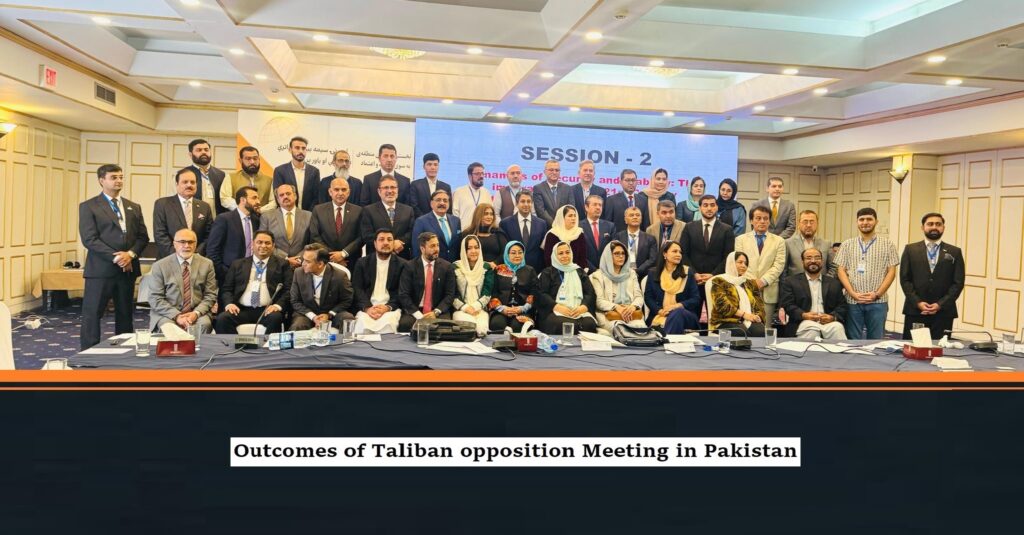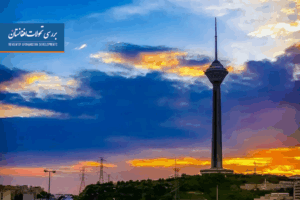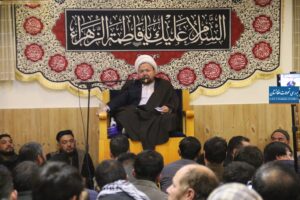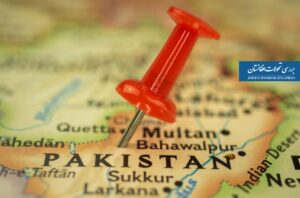Review of Afghanistan developments
Despite the impact of the internet shutdown news in Afghanistan on the Taliban opposition meeting in Islamabad, it appears that the meeting conveys significant messages to the Taliban government. The gathering, named “Towards Unity and Trust,” was organized by the South Asia Strategic Stability Institute in collaboration with an Afghan organization known as “Women for Afghanistan,” which is led by Fawzia Koofi, a former member of the Afghan parliament, on Monday and Tuesday, September 30 and October 1st. The occurrence of this meeting prompts inquiries, particularly regarding why Pakistan, which has supported the Taliban for nearly 25 years, is now facilitating a meeting for the Taliban’s opponents. This note explores the meeting and provides answers to this question.
The objective of Pakistan in hosting the Taliban opposition meeting
Pakistan, which had been endeavoring to reinstate the Taliban to power for almost twenty years, anticipated that the Taliban leaders would implement a foreign policy in accordance with Islamabad following their takeover of Afghanistan. After the Taliban assumed control in Afghanistan, General Faiz Hamid, who was the head of the ISI at the time, demonstrated by his presence in Kabul that backing the new government was part of Rawalpindi’s agenda.
But in practice, contrary to the expectations of Pakistan’s political and military leaders, the Taliban government adopted an independent approach that surprised and astonished observers, to the point that some considered the tension between Kabul and Islamabad to be a war of attrition. The Taliban government adopted an independent and balanced foreign policy in which relations with countries were regulated based on Afghanistan’s national interests, not on concessions to Islamabad. The beginning of the Taliban government’s relations with India was another heavy blow for Pakistan that it did not expect, because one of Pakistan’s challenges with the previous Afghan regime was its inclination towards India and Delhi’s increasing influence in Afghanistan.
Another allegation frequently leveled by Pakistan against the Taliban government pertains to its backing of the Pakistani Taliban (TTP). Utilizing this issue, Pakistani officials exert pressure on the Taliban government through various channels. Nevertheless, Pakistan’s primary demand is different, and it employs the matter of the Tehreek-e-Taliban Pakistan as a means to achieve its objectives.
Considering that the Taliban administration has shown reluctance to yield to Pakistan and that previous measures have proven ineffective, Pakistan is now attempting to employ a novel strategy by providing a platform for Taliban oppositions.
Presenting the wolf’s head to the Taliban
The interactions between Pakistan and the Taliban government over the last four years can be represented on a two-axis graph, where one axis indicates satisfaction and the other reflects dissatisfaction and distrust. Consequently, both the Taliban and Pakistan are employing a variety of strategies to establish equilibrium.
By hosting the Taliban opposition meeting on its territory, Pakistan is, in a figurative manner, presenting the Taliban with a warning or Presenting the wolf’s head to them. Through this meeting, Pakistani officials are conveying to the Taliban leaders that the nation, as it has done previously, possesses the ability to serve as a stronghold for adversaries of the central Afghan government, potentially resulting in the toppling of the Kabul administration. As Khalilzad noted in his remarks regarding the Taliban opposition meeting held in Islamabad, Pakistan has made a provocative move by welcoming individuals who advocate for the violent dismantling of the Taliban regime.
The status of the guests and hosts at the Taliban opposition meeting
Although the Taliban opposition meeting in Pakistan is provocative and reflects Pakistan’s different approach towards the Taliban government, it is clear from the composition of the invitees, which includes people like Nasir Ahmad, who represents Afghanistan in Geneva, Mustafa Mastoor (nephew of Abdullah Abdullah), former Afghan Minister of Economy, Fawzia Kofi, former member of the Afghan parliament, and Hussain Yassa, spokesperson for the National Resistance Council for the Salvation of Afghanistan. The level of the meeting was not high and low-ranked individuals were selected for the Taliban opposition meeting.
The caliber of the attendees at each meeting reflects its credibility, and the diminished quality of participants at the Taliban opposition meeting suggests that Islamabad intended to employ this perilous strategy in a limited manner.
Also this meeting is being organized by a relatively under-recognized think tank that claims to “promote peace and foster trust between Afghanistan and Pakistan.” The political stance of the hosting institution indicates that Pakistan has only begun to explore the current landscape, yet it has the capacity to either restrict or broaden this landscape based on the reactions to its requests from the Taliban government.
The skepticism of Taliban oppositions towards Pakistan
What is referred to as the Taliban opposition today comprises a coalition of civil society members, women’s rights advocates, and politicians who fled Afghanistan following the collapse of the republic. All of these individuals hold Pakistan primarily responsible for the current circumstances. Consequently, it is challenging to place trust in the origins and instigator of the present situation. Reports from unofficial news sources indicate that several individuals were invited to a Taliban opposition meeting in Islamabad; however, due to the aforementioned reasons, some invitees declined to participate. The reactions of certain Afghan politicians regarding the Taliban opposition meeting organized by Pakistan have also been quite severe. For instance, Ghafoor Liwal, the former Afghan ambassador to Iran, labeled Pakistan as a source of contamination and a threat to Afghanistan, and in reference to the Taliban opposition meeting in Pakistan, he stated, “Everything that has come or is coming from Pakistan is poison.”
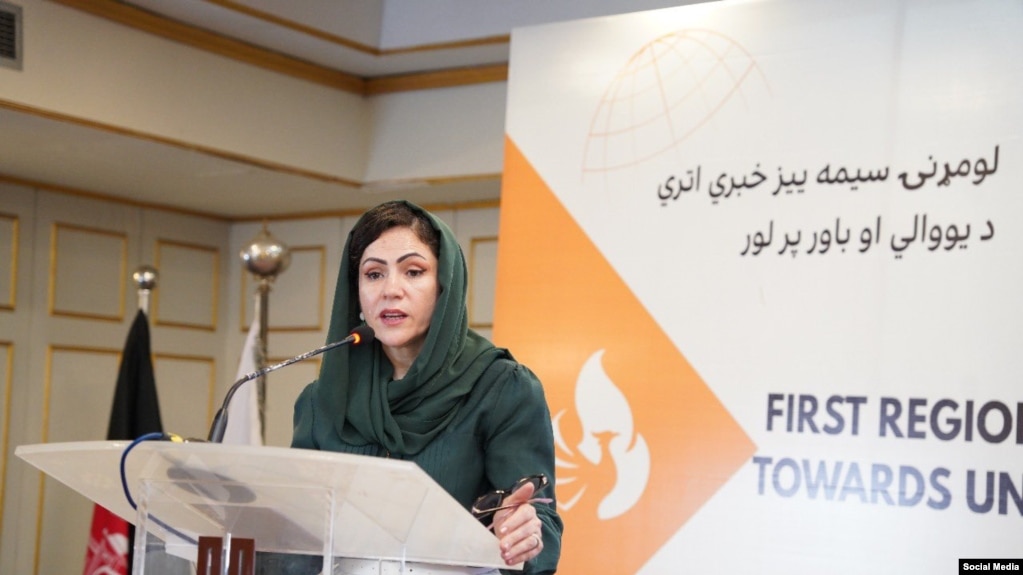
Content of the Taliban opposition meeting
The two-day meeting of the Taliban opponents took place in a private setting, resulting in minimal information being disseminated to the media. Based on what has been reported thus far from credible sources, as well as during a press conference held by several participants at the conclusion of the meeting, the attendees addressed regional challenges following the Taliban’s takeover of Afghanistan. They discussed strategies to combat the existing status quo through political, civil, and military means, the absence of a legitimate government, the threats posed by the current situation, the importance of regional confidence-building, particularly with Pakistan, the need to halt the forced deportation of refugees, and the establishment of a coordination mechanism among the participating members and institutions.
“Islamabad Process” Formation; the first outcome of the Taliban opposition meeting
As stated by Fawzia Kofi during the press conference following the meeting, the attendees have urged that the meeting evolve into a process and that a political office for coordination be established, a proposal to which the hosts have consented. In addition to this request, which has been accepted by the host (Pakistan), there has also been a call for the creation of an office; however, it remains uncertain whether any consensus has been achieved regarding this issue.
Consequently, with the approval of Pakistan, the gathering of the Taliban opposition in Islamabad will evolve into a formal process, and we will observe the initiation of another process concerning the Afghan domain. Up to this point, the Vienna process, spearheaded by Ahmad Massoud’s movement, has conducted ongoing meetings in Austria, and it is likely that following this, the Islamabad process will also be established.
The possible emergence of a new armed group
A significant aspect of the Islamabad meeting is the participants’ advocacy for an armed struggle in conjunction with the political struggle in Afghanistan. This indicates that the efforts by the Pakistanis to exert pressure on the Taliban government have been effective, and it is likely that an armed movement will arise from this meeting, distinct from both the National Resistance Front and the Freedom Front. In other words, a new front with a different ethnic makeup is expected to emerge.
Related Articles
The Ups and Downs of Pakistan-Taliban RelationsLink 2
Pakistan’s New Tools for Strategic Depth Policy in Afghanistan
Conclusion
To exert pressure on the Taliban government, Pakistan transformed a straightforward meeting with low-ranking attendees into elevated demands from media representatives, which could present a considerable challenge to the Taliban government if put into action. The pattern of the Taliban opposition convening in Islamabad and turning it to a process indicates that moving forward, a prominent meeting will be conducted annually by the Taliban opposition in the adjacent nation.
It is also conceivable that should tensions escalate between Kabul and Islamabad, Pakistan may, at the behest of the members of the “Islamabad Process”, create and equip a movement that will undoubtedly differ from the current fronts, as this new front is expected to receive backing from Pakistani intelligence.
Undoubtedly, all of these represent current threats, and at this juncture, Pakistan aims to demonstrate its new and effective tool to the Taliban government. Nevertheless, it should be noted that the Taliban government is not without its own resources either.


